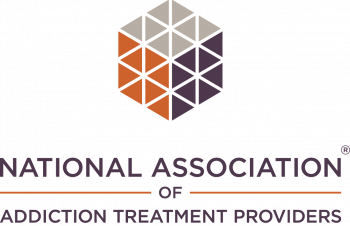Alcohol use can start casually, enjoying a glass of wine with dinner or having a few beers with friends. This occasional consumption is the extent of their use for many people, but unfortunately, some people have underlying issues that make them susceptible to alcohol abuse. What begins to kick back and relax becomes an unhealthy coping mechanism to numb the pain of stress, trauma, and mental illness. When alcohol use gets out of control, it is vital to seek assistance from an alcohol detox center to end your addiction safely.
If you think you can quit alcohol cold-turkey at home, you may want to reconsider. Those who attempt an at-home detox often do not make it through the entire course of withdrawal. If they do manage to get through it, they remain at a high risk of relapse. Detox centers for alcohol use evidence-based treatment that is designed for maximum efficacy and safety. When you put your trust in an alcohol detox program, you will benefit from the following:
Safe Withdrawal Is the Priority
Alcohol withdrawal symptoms can vary greatly based on your alcohol use history. For people who have used alcohol for many years, drink heavily, or have tried quitting in the past, the withdrawal symptoms can be quite severe. Unlike many other drugs, withdrawal from alcohol can be particularly dangerous.
People struggling with severe alcohol addiction are at a higher risk of the following alcohol withdrawal symptoms:
- Delirium tremens (DTs)
- Seizures
- Cardiac arrest
- Hallucinations
- Hypophosphatemia
- Alcoholic ketoacidosis
Alcohol addiction treatment centers are staffed by trained professionals who will monitor you around the clock throughout your detox. They know how to manage each of the above withdrawal symptoms to ensure that you get through the process safely.
Medication Can Alleviate Your Discomfort
In addition to the risk of dangerous withdrawal symptoms, you will undergo varying levels of discomfort as alcohol leaves your system. Alcohol withdrawal symptoms typically peak around two to three days after your last drink, but they can last up to one week or more for severe addictions.
As you withdraw from alcohol, you may experience the following symptoms:
- Headaches
- Tremors
- Nausea
- Vomiting
- Anxiety
- Insomnia
Some of the above symptoms may be mildly uncomfortable if your substance use disorder is not as pronounced and may feel like a typical hangover. However, the more advanced your addiction is, the more severe the symptoms. Alcohol detox centers can help you manage the discomfort with the assistance of medication. Their goal is to keep you as comfortable as possible, so you stick with treatment and decrease your risk of relapse.
Therapy Is Key for Mental Health Support
Alcohol addiction is often not a solitary problem. Most people struggle with alcohol abuse due to mental health conditions, trauma, grief, and chronic stress. For this reason, no alcohol detox is complete without the incorporation of therapy.
Some mental health disorders associated with alcohol use disorder are:
- Anxiety
- Depression
- Post-traumatic stress disorder
- Bipolar disorder
- Obsessive-compulsive disorder
Since detox programs are usually no longer than seven days, the therapy you receive at that time is just an introduction to exploring your relationship with alcohol. Healing from mental health conditions and learning how to manage them so they do not bring you back to addiction will take long-term treatment. Your detox care team can help connect you with the right addiction therapy program for your recovery.
Find Safety, Comfort, and Support at Your Local Alcohol Detox Center
When you are ready to break up with alcohol, consider getting help from an alcohol detox program. Although you may think your addiction is mild, you will benefit from the safety of treatment from a caring team of professionals who are focused on your comfort and successful recovery. Give yourself the give of sobriety with professional alcohol addiction treatment.








